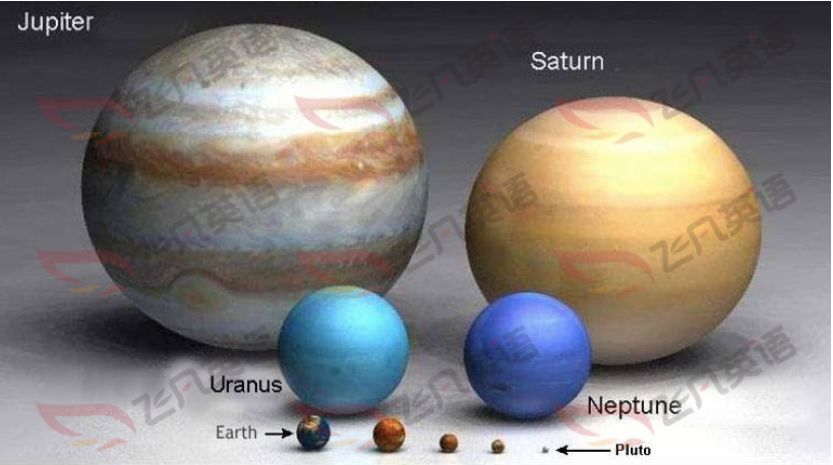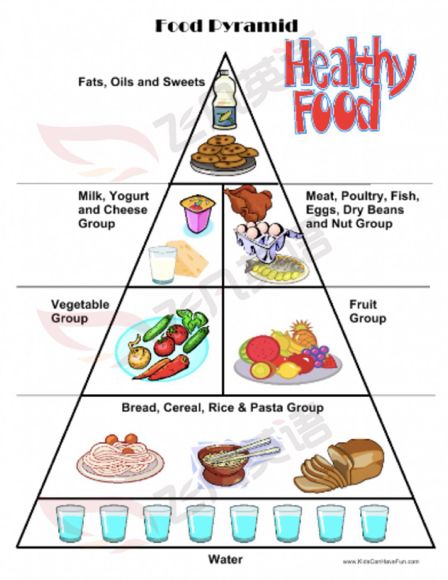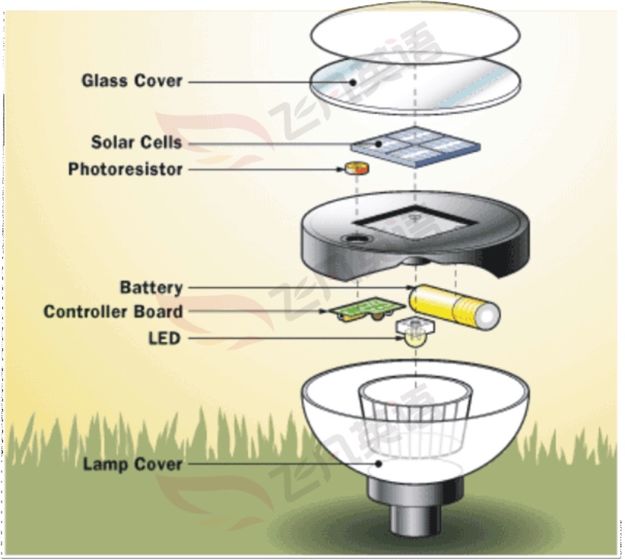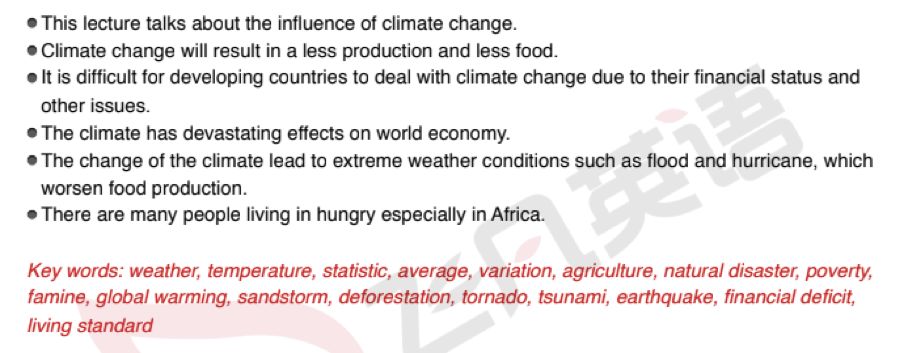发布时间:2019-06-14 10:16:11
 2472
2472
SPEAKING
▌ Read Aloud
1. Introvert and extrovert
Introvert (or those of us with introverted tendencies) tends to recharge by spending time alone. They lose energy from being around people for long periods of time, particularly large crowds. extroverts, on the other hand, gain energy from other people. Extroverts actually find their energy is sapped when they spend too much time alone. They recharge by being social.
2. Pluto
Pluto lost its official status as a planet yesterday, when the International Astronomical Union downsized the solar system from nine to eight planets. Although there had been passionate debate at the IAU General Assembly Meeting in Prague about the definition of a planet - and whether Pluto met the specifications - the audience greeted the decision to exclude it with applause.
3. Blue
While blue is one of the most popular colours, it is one of the least appetizing. Blue food is rare in nature. Food researchers say that when humans searched for food, they learned to avoid toxic or spoiled objects, which were often blue, black, or purple. When food dyed blue is served to study subjects, they lose appetite.
4. Yellow Tulip
How do we imagine the unimaginable If we’re asked to think of an object say, a yellow tulip a picture immediately forms in our mind’s eye? But what if we try to imagine a concept such as the square root of negative number?
5. Augustus
Augustus was given the powers of an absolute monarch, but he presented himself as the preserver of republican traditions. He treated the Senate, or state council, with great respect, and was made Consul year after year. He successfully reduced the political power of the army by retiring many soldiers, but giving them land or money to keep their loyalty.
▌ Repeat Sentence
此题型可以搭配【飞凡英语RS Practice Tool音频系列】一起使用 (复制链接到浏览器或点击阅读原文)
https://youtu.be/N9W2McRA9kc
无法登陆YouTube的国内学员请私聊顾问或在本文文末留言
1. 39.5% California residents don’t speak English at home.
2. A demonstrated ability to write clear, correct and concise English is bigotry.
3. Anatomy is the study of internal and external body structures.
4. Answering this complex question with a simple yes or no is absolutely impossible.
5. Basketball was created in 1891 by a physical instructor.
6. He was constantly looking for ways to bring industry and agriculture together.
7.Lecture theater is located on the ground floor of the back building.
8. I don’t like cheese and tomato sandwiches on white bread and orange juice.
9. I need a milk and sugar in my coffee.
10. I used to have a cup of coffee with one sugar
11. If you forget your student number, please contact Jenny Bronze.
12. In consultation with your supervisor, your thesis is approved by the faculty committee.
13. Interpreters are not readily available in this department.
14. It is important to take gender into account when discussing the figures.
15. Just wait a minute, I will be with you shortly.
▌ Describe Image
1.

2.

3.

4.

▌ Retell Lecture
1. Australian Export

2. Influence of climate change

3. Bomb calorieter

4. Smell of Books
People enjoy the smell in the library and ask library to preserve this smell.
Smell is an important way for people to communicate with environment.
According to an advertising research, sight, smelling and hearing are the top three ways we communicate with heritage environment.
The sense of smell is located in very central of our brain and close to limbic system in our brain.
The way we perceive the environment through smell is not only important, but also instinctive.
WRITING
▌ Summarise Written Text
1. Parents control their children’s TV watching
Why and to what extent should parents control their children’s TV watching? There is certainly nothing inherently wrong with TV. The problem is how much television a child watches and what effect it has on his life. Research has shown that as the amount of time spent watching TV goes up, the amount of time devoted not only to homework and study but other important aspects of life such as social development and physical activities decreases.
Television is bound to have it tremendous impact on a child, both in terms of how many hours a week he watches TV and of what he sees. When a parent is concerned about the effects of television, he should consider a number of things: what TV offers the child in terms of information and knowledge, how many hours a week a youngster his age should watch television, the impact of violence and sex, and the influence of commercials.
What about the family as a whole? Is the TV set a central piece of furniture in your home! Is it flicked on the moment someone enters the empty house? Is it on during the daytime? Is it part of the background noise of your family life? Do you demonstrate by your own viewing that television should be watched selectively?
参考答案:
Parents should control their children’s TV watching because how much television a child watches and what effect it has on his life, and when a parent is concerned about the effects of television, he should consider a number of things: what TV offers the child in terms of information and knowledge, how many hours a week a youngster his age should watch television, the impact of violence and sex, and the influence of commercials.
2. Overqualified workers
If your recruiting efforts attract job applicants with too much experience a near certainty in this weak labour market you should consider a response that runs counter to most hiring managers MO: Don't reject those applicants out of hand.
Instead, take a closer look. New research shows that overqualified workers tend to perform better than other employees, and they don't quit any sooner. Furthermore, a simple managerial tactic empowerment can mitigate any dissatisfaction they may feel.
The prejudice against too-good employees is pervasive. Companies tend to prefer an applicant who is a perfect fit over someone who brings more intelligence, education, or experience than needed. On the surface, this bias makes sense: Studies have consistently shown that employees who consider themselves overqualified exhibit higher levels of discontent. For example, over-qualification correlated well with job dissatisfaction in a 2008 study of 156 call-centre reps by Israeli researchers Saul Fine and Baruch Nevo. And unlike discrimination based on age or gender, declining to hire overqualified workers is perfectly legal.
But even before the economic downturn, a surplus of overqualified candidates was a global problem, particularly in developing economies, where rising education levels are giving workers more skills than are needed to supply the growing service sectors. If managers can get beyond the conventional wisdom, the growing pool of too-good applicants is a great opportunity. Berrin Erdogan and Talya N. Bauer of Portland State University in Oregon found that overqualified workers' feelings of dissatisfaction can be dissipated by giving them autonomy in decision making. At stores where employees didn't feel empowered, over-educated workers expressed greater dissatisfaction than their colleagues did and were more likely to state an intention to quit. But that difference vanished where self-reported autonomy was high.
参考答案:
You should consider a response that runs counter to most hiring managers MO, and the prejudice against too-good employees is pervasive, and employees who consider themselves overqualified exhibit higher levels of discontent, but a surplus of overqualified candidates was a global problem, and overqualified workers' feelings of dissatisfaction can be dissipated by giving them autonomy in decision making.
3. Australian educational quality and equity
When Australians engage in debate about educational quality or equity, they often seem to accept that a country cannot achieve both at the same time. The lecture will present compelling international evidence that there are countries which do, though Australia is not among them.
Curriculum reforms intended to improve equity often fail to do so because they increase breadth or differentiation in offerings in a way that increases differences in quality. Further, these differences in quality often reflect differences in students’ social backgrounds because the ‘new’ offerings are typically taken up by relatively disadvantaged students who are not served well them. Evidence from New South Wales will be used to illustrate this point.
The need to improve the quality of education is well accepted across OECD and other countries as they seek to strengthen their human capital to underpin their modern, knowledge economies. Improved equity is also important for this purpose, since the demand for high-level skills is widespread and the opportunities for the low-skilled are diminishing.
Improved equity in education is also important for social cohesion. There are countries in which the education system seems primarily to reproduce existing social arrangements, conferring privilege where it already exists and denying it where it does not. Even in countries where the diagnosis might be less extreme, the capacity of schooling to build social cohesion is often diminished by the way in which schools separate individuals and groups. The lecture will explore ways in which an education system could provide choice, as Australia’s does, while also increasing social capital and helping to increase social cohesion. The perspective will be one of lifelong learning and not just learning during the years of schooling.
参考答案:
A country cannot achieve educational quality or equity at the same time, and curriculum reforms intended to improve equity often fail, and the need to improve the quality of education is well accepted, and improved equity in education is important for social cohesion, and the lecture will explore ways in which an education system could provide choice, as Australia’s does, while also increasing social capital and helping to increase social cohesion. (71 word)
4. Tiny frog found in Mexico
A miner in the state of Chiapas found a tiny tree frog that has been preserved in amber for 25 million years, a researcher said. If authenticated, the preserved frog would be the first of its kind found in Mexico, according to David Grimaldi, a biologist and curator at the American Museum of Natural History, who was not involved in the find.
The chunk of amber containing the frog, less than half an inch long, was uncovered by a miner in Mexicos southern Chiapas state in 2005 and was bought by a private collector, who loaned it to scientists for study. A few other preserved frogs have been found in chunks of amber a stone formed by ancient tree sap mostly in the Dominican Republic. Like those, the frog found in Chiapas appears to be of the genus Craugastor, whose descendants still inhabit the region, said biologist Gerardo Carbot of the Chiapas Natural History and Ecology Institute. Carbot announced the discovery this week.
The scientist said the frog lived about 25 million years ago, based on the geological strata where the amber was found. Carbot would like to extract a sample from the frogs remains in hopes of finding DNA that could identify the particular species, but doubts the owner would let him drill into the stone.
参考答案:
A miner in the state of Chiapas found a tiny tree frog has been preserved in amber for 25 million years, which would be the first of its kind found in Mexico, and it was bought by a private collector, and Carbot would like to extract a sample from the frogs remains in hopes of finding DNA that could identify the particular species, but doubts the owner would let him drill into the stone. (74 words)
5. Tree rings (dendrochronology 树木年代学)
Here’s how tree ring dating, known to scientists as dendrochronology works. If you cut a tree down today, it’s straightforward to count the rings inwards, starting from the tree’s outside (corresponding to this year’s growth ring), and thereby to state that the 177th ring from the outermost one towards the centre was laid down in the year 2005 minus 177, or 1828. However, the widths of tree growth rings vary from year to year, depending on the rain or drought conditions in each year.
Hence the sequence of the rings in a tree cross-section is like a message in Morse code formerly used for sending telegraph messages; dot-dot-dash-dot-dash in the Morse code, wide-wide narrow-wide- narrow in the tree ring sequence. Actually the tree ring sequence is even more diagnostic and richer in information than the Morse code, because trees actually contain rings spanning many different width, rather than the Morse code choice between dot and dash.
Tree ring specialists (known as dendrochronologists) proceed by noting the sequence of wider and narrower rings in a tree cut down in a known recent year, and also noting the sequences in beams from trees cut down at various times in the past. They then match up and align the tree ring sequences with the same diagnostic wide/narrow patterns from different beams.
In that way, dendrochronologists have constructed tree ring records extending back for thousands of years in some parts of the world. Each record is valid for a geographic area whose extent depends on local weather patterns, because weather and hence tree growth patterns vary with location.
参考答案:
How tree ring dating is known as dendrochronology works, and the widths of tree growth rings vary from year to year, and the sequence of the rings is like a message in Morse code, and it is even more diagnostic and richer in information, and tree ring specialists proceed by noting the sequence of wider and narrower rings, and each record is valid for a geographic area whose extent depends on local weather patterns. (74 words)
▌ Essay
1. Government should create better network of public transport available for everyone or build more roads owning population.
2. Which one is better, Textbook library or new digital material in university. The role of a library in keeping books is obsolete. So universities should use digital media. What is your opinion? Discuss advantages and disadvantages.
3. Design of buildings have positive or negative impact on people’s life and work?
4. It is important to maintain a right balance of your work and other respects of one’s life such as family and leisure sport. What is your opinion about this? Discuss with appropriate examples.
5. Whether experiential learning (learning by doing) can work well in formal education. Do you agree or disagree?
6. How widely of you think the problem spreads that people spend too much time on work than their personal life and experience time shortage? What problems will it cause?
7. Experience is more effective and useful than books and formal education. What is your opinion?
8. Large shopping malls are replacing small shops. What is your opinion about this? Discuss with appropriate examples.
9. Discuss the significance of music to the study of young children. Certain kinds of music can promote young children learning do you agree or disagree.
10. Is it fair for universities to deduct students’ marks when their assignments are overdue?
LISTENING
▌ Summarise Spoken Text
1. Globalisation
There are three definitions for globalisation.
Firstly, there is a proliferation of trade, transactions and multinational companies beyond the borders.
Secondly, there are more travel and cooperations between companies from different nations.
Thirdly, economy system: a integrated economy has been formed as countries depend on each other more in terms of production and consumption, and the production process has been split for different countries.
2. Memories
Different systems of memories, including implicit and explicit memories.
Implicit memories cannot be consciously recalled upon, and behaviours are automatic. This often relates to a persons cultural and social background. E.g. Using language naturally, reading and driving.
Explicit memories are highly personal memories relating to time, space and people. It is totally different from implicit memory, which is why people can remember birthdays and answer multiple questions in a test.
3. Laughing
The text is about the benefits of laughing, especially in adversity.
People realised the importance of laughing a long time ago and there are different understandings about humour in different regions. (Iran, Egypt, Soviet)
There were war jokes about the Berlin Wall spreading among east regions for 30 years during the second World War, and this eased the harm of the war.
Moreover, as humour, laughing can help people get through bleak and boring time.
Laugh can be used as a great therapy. As a therapy, laughing can effectively improve people’s self-respect and identity.
4. Amory Lovins (Mr Green)
A man named Amory. Nobody knows him in the classroom, He has a consulting company and lives in a house built on a mountain.
He spent 30 years thinking about ways to save energy and solved problems with technologies that already existed.
People regarded him as genius. He has an unusual character with a wide range of knowledge, but he's not an academic.
A female writer wrote a book about him named Mr. Green.
5. Environmental law
British government launched the environmental law long before at the time of Charles the Second in order to control the impact of human activities on environment.
However, the enforcement of environmental law was not well-established.
Later, during the time of Industrial Revolution, British government reinforced the environment law to punish those companies who applied the Adam Smith theory to increase their profitability.
Managers were unsatisfied, because companies had to pay more money to ensure the health of their employees under the environmental law, which made companies less competitive in the market.
▌ Write From Dictation
1. Although sustainable development is not easy, it is an unavoidable responsibility.
2. Animals raised in captivity behave differently than their wild counterparts.
3. Assignments should be submitted to the department office before deadline.
4. Climate change is now an acceptable phenomenon among reputable scientists.
5. Clinical placement for nursing prepares students for professional practice.
6. Collaboration between departments is a feature of successful companies.
7. Evaluation forms are reviewed by the university personnel.
8. Everyone must evacuate the premises during the fire drill.
9. Free campus tours run daily during summer for prospective students.
10. I thought we should meet in the small meeting room.
11. If the finance is a cause of concern, the scholarship may be available.
12. Many graduates of journalism get jobs in the communication field.
13. Mutually exclusive events can be described as either complementary or opposite.
14. Native speakers are exempt from their language tests in their own languages.
15. Observers waited nervously and bated their breath for the concert.
16. Our medical school students must attend the talk about optional courses.
17. Our professor is hosting the business development conference.
18. Participants initially select from a range of foundation subjects.
19. Radio is a popular form of entertainment throughout the world.
20. Scientists are always asking governments for more money.
21. Several candidates will be qualified as the greatest scientists in all time.
22. She used to be the editor of the student newspaper.
23. Some departments have their own special book collections.
24. Students were instructed to submit their assignments before Friday.
25. Students who are successful have a good strategy for learning.
26. Supply and demand is one of the most fundamental concepts in the economics.
27. Teaching assistants will receive a monthly stipend for housing.
28. The aerial photographs were promptly registered for thorough evaluation.
29. The artists tied/ties the conservative politicians, earned their roles of critics.
30. The business policy seminar includes an internship with a local firm.
READING
▌ Fill in The Blanks
1. Poverty
Measuring poverty on a global scale requires establishing a uniform poverty level across extremely divergent economies, which can result in only rough comparisons. The World Bank has defined the international poverty line as U.S. $1 and $2 per day in 1993 Purchasing Power Parity (PPP), which adjusts for differences in the prices of goods and services between countries. The $1 per day level is generally used for the least developed countries, primarily African; the $2-per-day level is used for middle income economies such as those of East Asia and Latin America.
2. Australia and New Zealand
Australia and New Zealand have many common links. Both countries were recently settled by Europeans, are predominantly English speaking and in that sense, share a common cultural heritage. Although in close proximity to one another, both countries are geographically isolated and have small populations by world standards. They have similar histories and enjoy close relations on many fronts.
In terms of population characteristics, Australia and New Zealand have much in common. Both countries have minority indigenous populations, and during the latter half of the 20th century have seen a steady stream of migrants from a variety of regions throughout the world. Both countries have experienced similar declines in fertility since the high levels recorded during the baby boom, and alongside this have enjoyed the benefits of continually improving life expectancy. One consequence of these trends is that both countries are faced with an ageing population, and the associated challenge of providing appropriate care and support for this growing group within the community.
3. America’s Skies
By 2025, government experts say America’s skies will swarm with three times as many planes, and not just the kind of traffic flying today. There will be thousands of tiny jets, seating six or fewer, at airliner altitudes, competing for space with remotely operated drones that need help avoiding midair collisions, and with commercially operated rockets carrying satellites and tourist into space.
4. Great Barrier Reef
The ocean floor is home to many unique communities of plants and animals. Most of these marine ecosystems are near the water surface, such as the Great Barrier Reef, a 2,000km long coral formation off the northeaster coast of Australia. Coral reefs, like nearly all complex living communities, depend on solar energy for growth (photosynthesis). The sun’s energy, however, penetrates at most only about 300m below the surface of the water. The relatively shallow penetration of solar energy and the sinking of cold, sub-polar water combine to make most of the deep ocean floor a frigid environment with few life forms.
In 1977, scientists discovered hot springs at a depth of 2.5km, on the Galapagos Rift (spreading ridge) off the coast of Ecuador. This exciting discovery was not really a surprise. Since the early 1970s, scientists had predicted that hot springs (geothermal vents) should be found at the active spreading centres along the mid-oceanic ridges, where magma, at temperatures over 1,000°C, presumably was being erupted to form new oceanic crust. More exciting, because it was totally unexpected, was the discovery of abundant and unusual sea life – giant tube worms, huge clams, and mussels – that thrived around the hot springs.
5. The United Nations
The United Nations is an international organization founded in 1945 after the Second World War by 51 countries committed to maintaining international peace and security, developing friendly relations among nations and promoting social progress, better living standards and human rights. Due to its unique international character, and the powers vested in its founding Charter, the Organization can take action on a wide range of issues, and provides a forum for its 193 Member States to express their views, through the General Assembly, the Security Council, the Economic and Social Council and other bodies and committees.
The work of the United Nations reaches every corner of the globe. Although best known for peacekeeping, peace-building, conflict prevention and humanitarian assistance, there are many other ways the United Nations and its System (specialized agencies, funds and programmes) affect our lives and make the world a better place.
▌ Re-order Paragraph
1. The CEO of Wal-Mart
Wal-Mart CEO found out that consumers spent all their money
This trend ... negative effect ... this trend
The damage caused by ... confirm…serious.
Much more ... Problem is manageable.
2. Ne Tam (Monash student)
Mechanical engineering student Ne Tam is spending the first semester of this year studying at the University of California, Berkeley as part of the Monash Abroad program.
Ne, an international student from Shanghai, China, began her Monash journey at Monash Collage in October 2006.
There she completed a diploma that enabled her to enter Monash University as a second-year student.
Now in her third year of study, the Monash Abroad program will see her complete four units of study in the US before returning to Australia in May 2009.
3. A Pilot Delivering Mails
After finishing first in his pilot training class, Lindbergh took his first job as the chief pilot of an airmail route operated by Robertson Aircraft Co. of Lambert Field in St.Louis, Missouri.
He flew the mail in a de Havilland DH-4 biplane to Springfield, Illinois, Peoria and Chicago.
During his tenure on the mail route, he was renowned for delivering the mail under any circumstances。
After a crash, he even salvaged bags of mail from his burning aircraft and immediately phoned Alexander Varney, Peoria's airport manager, to advise him to send a truck.
4. Sepahua
SEPAHUA, a ramshackle town on the edge of Peru’s Amazon jungle, nestles in a pocket on the map where a river of the same name flows into the Urubamba.
That pocket denotes a tiny patch of legally loggable land sandwiched between four natural reserves, all rich in mahogany and accessible from the town. “Boundaries are on maps,” says a local logger, “maps are only in Lima,” the capital.
In 2001 the government, egged on by WWF, a green group, tried to regulate logging in the relatively small part of the Peruvian Amazon where this is allowed.
It abolished the previous system of annual control.
Instead, it auctioned 40-year concessions to areas ruled off on a map, with the right to log 5% of the area each year. The aim was to encourage strict management plans and sustainable extraction.
5. Early Rails
Early rails were used on horse drawn wagon way, originally with wooden rails, but from the 1760s using strap-iron rails, which consisted of thin strips of cast iron fixed onto wooden rails.
These rails were too fragile to carry heavy loads, but because the initial construction cost was less, this method was sometimes used to quickly build an inexpensive rail line.
However, the long-term expense involved in frequent maintenance outweighed any savings.
These were superseded by cast iron rails that were flanged and with the wagon wheels flat.
An early proponent of this design was Benjamin Outram. His partner William Jessop preferred the use of "edge rails" in 1789 where the wheels were flanged and, over time, it was realised that this combination worked better.
The first steel rails were made in 1857 by Robert Forester Mushet, who laid them at Derby station in England. Steel is a much stronger material, which steadily replaced iron for use on railway rail and allowed much longer lengths of rails to be rolled.
因公众号文章字数有上限,无法将完整的题目发布在文章里。如需领取【完整版】10月PTE高频预测.pdf,
请任选以下方式:
1. 添加任意飞凡顾问老师微信
2. 在飞凡英语公众号首页,回复 预测
